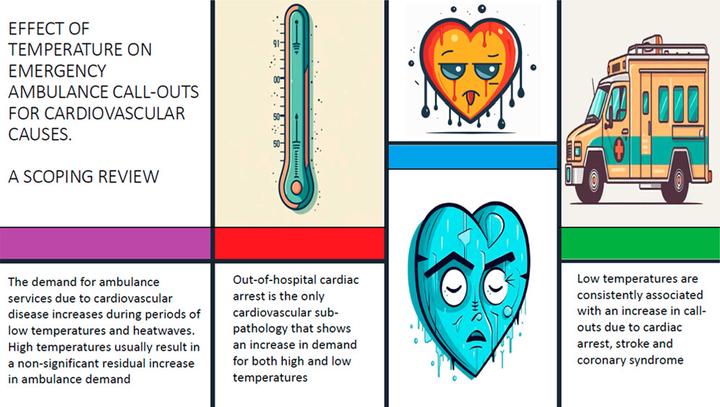Effect of Temperature on Emergency Ambulance Call-Outs for Cardiovascular Causes: A Scoping Review

Abstract
Climate change has increased interest in the effects of the thermal environment on cardiovascular health. Most studies have focused on mortality data. However, pre-hospital care data are better able to evaluate these effects, as they can register the full spectrum of the disease in real time. This scoping review aims to synthesize the epidemiological evidence regarding the effects of the thermal environment on cardiovascular morbidity in the pre-hospital setting, evaluated through ambulance calls. A staged literature search was performed using the PubMed database for the period between 1st January 2000 and 30th March 2023, using the MeSH terms “Weather” AND “Emergency Medical Services”. A total of 987 publications were identified that examined the correlation between the thermal environment and ambulance call-outs for cardiovascular causes. The studies were mostly ecological time series, with significant variability in the methodological aspects employed. An increase in the number of ambulance call-outs has been observed in association with low temperatures, both for overall cardiovascular pathologies and for certain pathological subtypes. For high temperatures, no effect has been observed in overall call-outs, although an increase has been observed during heat waves. The demand for ambulances for cardiac arrests is increased by both low and high temperatures and during heat waves. Ambulance call-outs for cardiovascular causes increase with low temperatures and heat waves, with no significant increase in the overall demand associated with high temperatures. Ambulance call-outs for cardiac arrests are the only subtype that is increased by high temperatures.